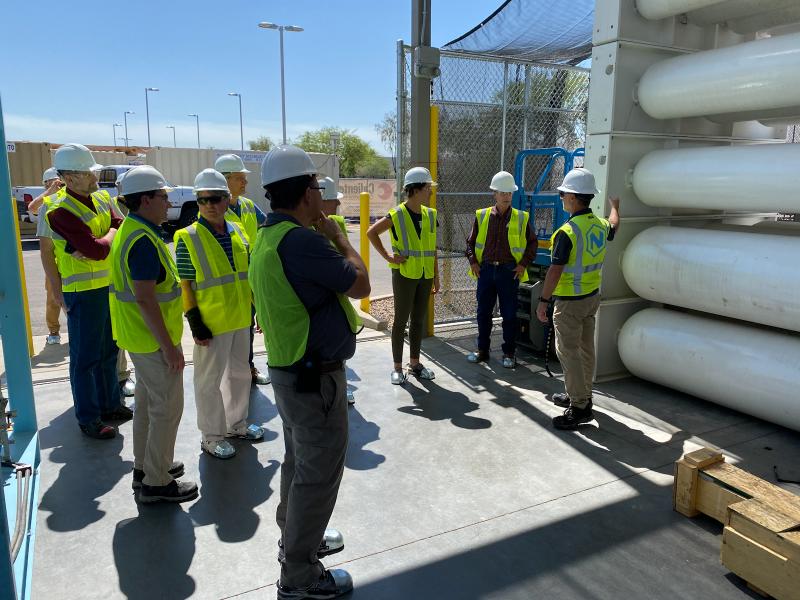
Hydrogen
& Fuel Cells
Hydrogen
& Fuel Cells
Research, development,
and innovation to advance
hydrogen and fuel cells
Research, development,
and innovation to advance
hydrogen and fuel cells
PNNL is strengthening America's energy security by applying its capabilities to enable the widespread use of hydrogen and fuel cells. Researcher Yuyan Shao uses a Rotating Disk Electrode System to test PGM-free catalyst materials that will be used in fuel cells.
Andrea Starr | Pacific Northwest National Laboratory
PNNL leverages multiple decades of innovation in hydrogen and fuel cells technologies to drive down costs, improve performance, and ensure safety, enabling a future where hydrogen is a viable, scalable solution across the country. This work extends across a broad spectrum of the Lab's key capabilities, from materials scientists developing hydrogen pipeline materials to physicists increasing the efficiency of the hydrogen liquefaction process.
The Lab's hydrogen portfolio includes a variety of hydrogen sources—geologic formations, electrolysis, fossil resources—and critical applications, such as hydrogen for maritime and data center applications. PNNL also engages in a range of hydrogen workforce development projects and leads the Hydrogen Safety Panel, a coalition of hydrogen experts that trains experts and first responders. PNNL innovations are helping hydrogen to become a viable choice for American energy by ensuring that it is affordable, practical, and safe.


